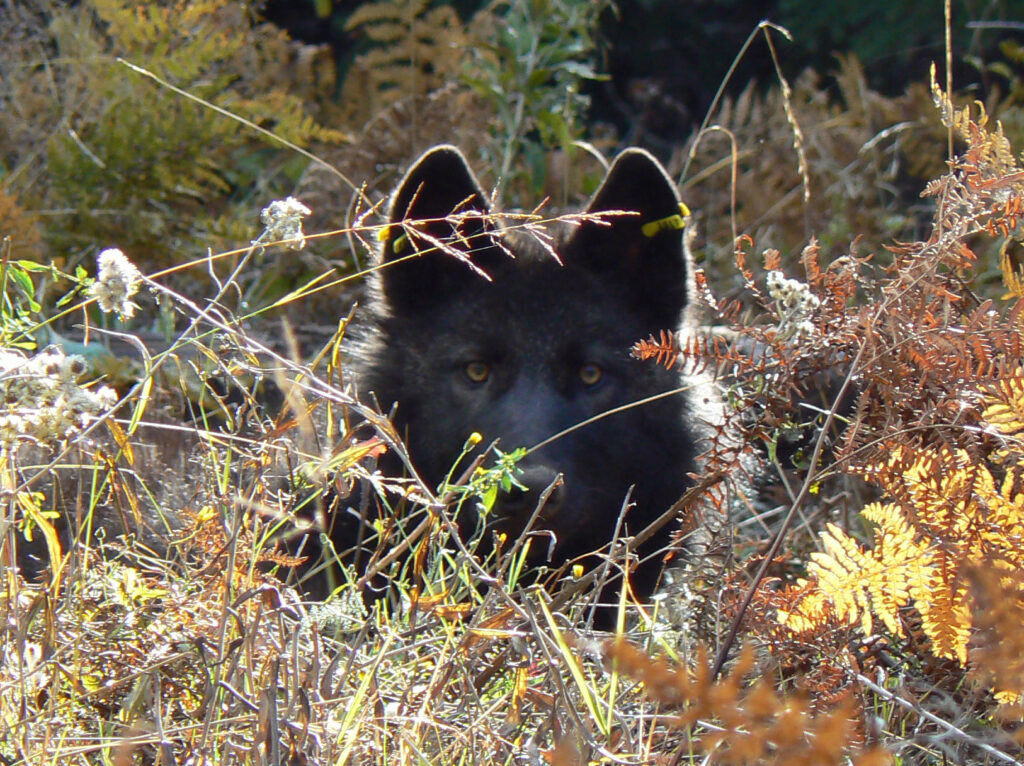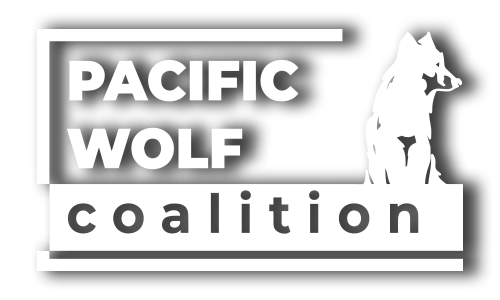
Why Action is Needed
Centuries ago, and in some states much more recently, nights spent outdoors under a star studded sky often included the howls of wolves to match owl calls and other voices of the wild. Wolves were once common and widespread throughout the United States, but came dangerously close to extinction due to human-driven eradication programs. Thanks to the efforts of so many, their recovery in the U.S. has begun, but is far from over.
For many Americans, this conservation success story is widely seen as an inspiring and incredible endeavor. However, a continued campaign of misinformation and fear has made wolf recovery a controversial issue in some communities and right in the tracks of these recovery efforts are undeniable social, symbolic, ecological and economic benefits and challenges. Does this sound all too familiar? The good news is that you can help propel wolf recovery efforts forward.
By taking action in support of wolf recovery, even the small steps count. When we say your voice matters, we mean it. As wolves return to the Pacific states of California, Oregon, and Washington they do so on a vastly different social, political, and ecological landscape than elsewhere in the country.
This fact creates opportunities and challenges unique to this region. Help the Pacific Wolf Coalition protect these magnificent apex predators by using the information and materials you find on this page – consider it your Action Toolkit.
Here’s some ways you can act for wolves in the Pacific West:
- Learn more about gray wolves: Gray Wolves 101
- Join our ‘pack’ of activists and download your Packtivist Kit
- Join young wolf advocates, our ‘pack’ of junior activists, and download your Jr. Packtivist Kit
- Get to know the members of the Pacific Wolf Coalition by visiting the links on our Home Page.
- Host an educational event and/or film screening in your community. Here are a few recommendations for films to watch: Wolf OR-7 Expedition, OR7 – The Journey, Land of Lost Wolves, Lords of Nature, Wild Things, Range Rider.
- Let your national, state, regional, and local officials know that you care deeply about wolf recovery in your state. Additionally, the letters to the editor section of local newspapers and magazines are prime locations for raising important issues and will help you reach a broad audience.
- Writing letters to these influential people and places will show that you are informed about local issues and holding your representatives accountable for what is happening to wolves in our region.
Important points you may want to include in your letters:
- Wolves perform a crucial role in maintaining wildlife diversity and ecosystem function. Turning our backs on wolves now means millions of acres of habitat will be without the benefits from wolves for years or decades to come – and some areas may never see the return of wolves.
- Any loss of protection could put at risk packs that are critical to a healthy and sustainable population of wolves in the Pacific West.
- Wolves should not be hunted and their numbers are self-regulating. Also, research has demonstrated that killing wolves increases conflicts livestock-wolf conflict.
- Wolves are still dispersing into their historical range in the Pacific West states of Washington, Oregon and California.
- California, Oregon, and Washington have state plans that call for recovery in the Cascades/Coast region, but many other states with good wolf habitat – but no wolves yet – are lacking recovery plans altogether.
CONTACTS
U.S. Department of the Interior
Secretary of the Interior: Deb Haaland
Email: feedback@ios.doi.gov
Phone: (202) 208-3100
Twitter: @SecDebHaaland, @Interior
Instagram: @USInterior
Facebook: /USInterior
Mailing Address:
1849 C Street NW, Washington, DC 20240
The White House
President: Joe Biden
Vice President: Kamala Harris
Email
Phone: (202) 456-1111
Twitter: @POTUS, @VP, @WhiteHouse
Instagram: @POTUS, @VP, @WhiteHouse
Facebook: @POTUS, /VicePresident, /WhiteHouse
Mailing Address:
1600 Pennsylvania Ave NW, Washington, DC 20500
U.S. Fish and Wildlife Service
Principal Deputy Director: Martha Williams
Email
Phone: 1(800) 344-9453
Social Media: Facebook, Twitter, Instagram
Mailing Address:
1849 C St NW, Washington, DC 20240
U.S. Fish and Wildlife Service (Regional)
Pacific Regional Director: Robyn Thorson
Email: Robyn_Thorson@fws.gov
Phone: (503) 231-6119, (503) 231-6120
Social Media: Facebook, Twitter
Mailing Address: 911 NE 11th Ave. Portland, Oregon 97232
California Fish and Wildlife Department
Director: Charlton H. Bonham
Email: Director@wildlife.ca.gov
Phone: (916) 445-0411
Mailing Address: 715 P Street, Sacramento, CA 95814
Oregon Fish and Wildlife Department
Director: Curt Melcher
Email: odfw.info@odfw.oregon.gov
Phone: (503) 947-6000
Mailing Address: 4034 Fairview Industrial Drive SE, Salem, OR 97302
Washington Fish and Wildlife Department
Director: Kelly Susewind
Email: director@dfw.wa.gov
Phone: (360) 902-2200
Mailing Address: 600 Capitol Way N. Olympia, WA 98501
